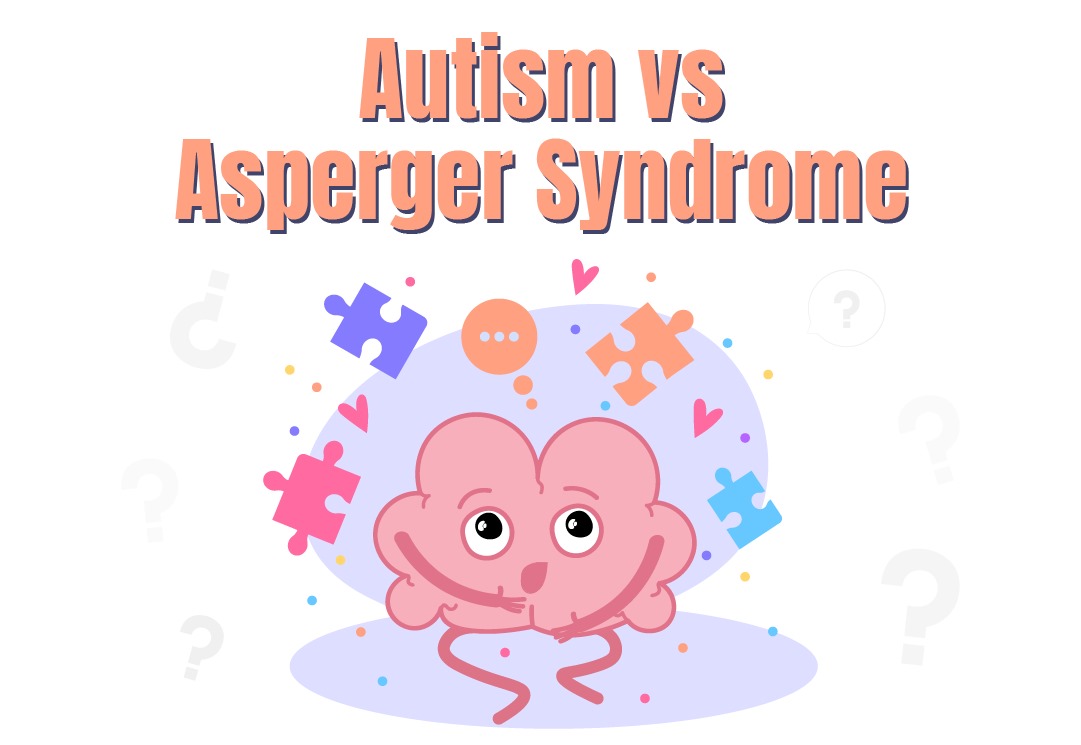Cart
Subtotal:
Your purchase supports our efforts in building the largest affordable and accessible neurodivergent library in the world 🌍 Thank you ❤

In this article, we will discuss two terms you might have heard of: autism and Asperger's syndrome. Some people think they are the same, but there are some important differences between them. We'll help you understand what makes each one special.
Autism is like a big umbrella that covers different ways the brain can work. People with autism might see the world in unique ways, and they might need different kinds of help or support. Asperger's syndrome is one part of that big group. People with Asperger's often find it hard to make friends and talk to others, but they usually don't have trouble with learning new words.
Knowing about these differences is important because it helps everyone understand and support each other better. So, let's dive in and learn more about autism and Asperger's syndrome together!
Autism is a word we use to describe a way some people's brains work differently. It's like being part of a special club where members see the world in their own unique way. Everyone in this club has different talents and things they find tricky.
Some common things that might be hard for people with autism include talking with others, making friends, or understanding how others feel. They might be really good at remembering facts or details about things they love, like dinosaurs or space!
Autism is not just one thing; it's like a rainbow with lots of different colors. Some people might need a little help, while others might need more. That’s why we say autism is a "spectrum." Just like in a box of crayons, no two colors are exactly the same, no two people with autism are the same either. Everyone is unique!
Asperger's syndrome is a part of the autism spectrum, which means it's one type of autism. People who have Asperger's are often really smart and do well in school, but they might find it hard to make friends or talk in a group.
People with Asperger's usually don't have trouble with words when they start talking as little kids. They can say things clearly, but they might not always understand jokes or the kind of talk that isn’t meant to be taken seriously, like when someone says, "It's raining cats and dogs!"
Even though they can talk about things they like a lot and know many details about their favorite subjects, it can be hard for them to chat about other things. They might also like to stick to a routine and feel upset if things change unexpectedly.
Understanding Asperger's helps us see why some people might act differently in social situations, and it teaches us how we can be better friends by knowing more about what makes them feel comfortable and happy.
Even though both autism and Asperger's are part of the same big group, they are a bit different from each other. Let's look at some ways we can tell them apart:
These differences help doctors and teachers figure out the best ways to help each kid learn and feel good. Knowing about these differences is important because it helps everyone understand and support each other better.
Living with autism or Asperger's syndrome is like going on a big adventure. Every day might feel a bit different, and sometimes it can be tricky, but it can also be full of surprises and special moments.
Even though there are some tough parts, kids with autism or Asperger’s have many amazing qualities. They often see the world in special ways that others don’t, like noticing details that everyone else misses or remembering facts that others forget. With the right help and understanding, they can do really well and feel great about themselves!
Knowing the difference between autism and Asperger's syndrome is super important. It helps everyone understand what kind of help each person might need. For example, a kid with Asperger's might need help making friends even though they're really good at schoolwork. A kid with autism might need help learning how to talk or play with others.
When we know more about each person’s needs, we can be better friends and helpers. Teachers and families can find the best ways to teach and support each person, making sure they feel good and can do their best.
We talked a lot about autism and Asperger's syndrome today. Remember, both are just parts of who someone is. People with autism or Asperger's can do amazing things when they get the support and understanding they need. Just like anyone else, they have special gifts and can share so much with the world.
1. What is autism?
Autism is a way some people's brains work differently. It can make talking, playing, and learning new things a little harder for them.
2. What is Asperger’s syndrome?
Asperger's syndrome is a type of autism. People with Asperger's can talk and learn well, but they might find it hard to make friends and understand other people’s feelings.
3. How are autism and Asperger’s different?
People with autism might start talking later, and learning can be harder for them. People with Asperger’s usually don’t have trouble with words, but they still find it tough to fit in with other kids.
4. Why is it important to know the difference between autism and Asperger’s?
It helps us understand what each person needs to learn and feel happy. Knowing the differences means we can be better friends and helpers.
5. Can people with autism or Asperger’s do the same things as other people?
Yes! They might need some help or a different way of doing things, but people with autism or Asperger's can do amazing things. They have special talents and can teach us a lot.

© NeuroDive. All Rights Reserved
Subscribe to our newsletter to receive news on update.
For support, please contact us at support@neurodive.co